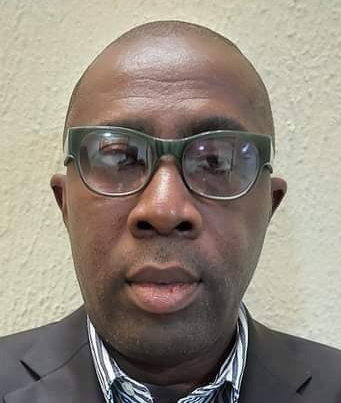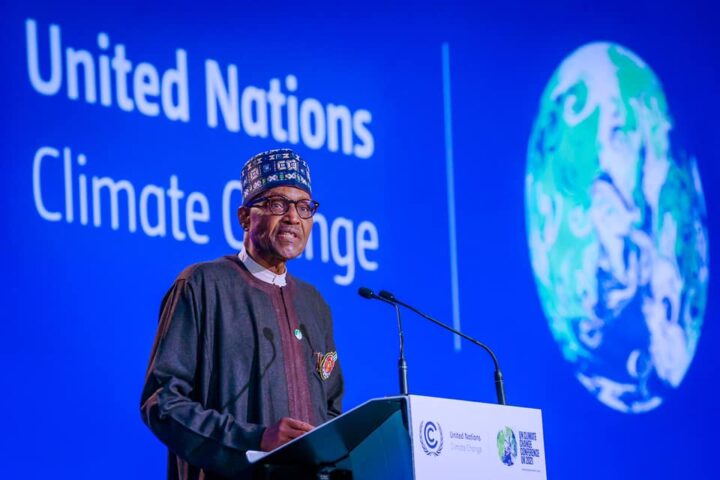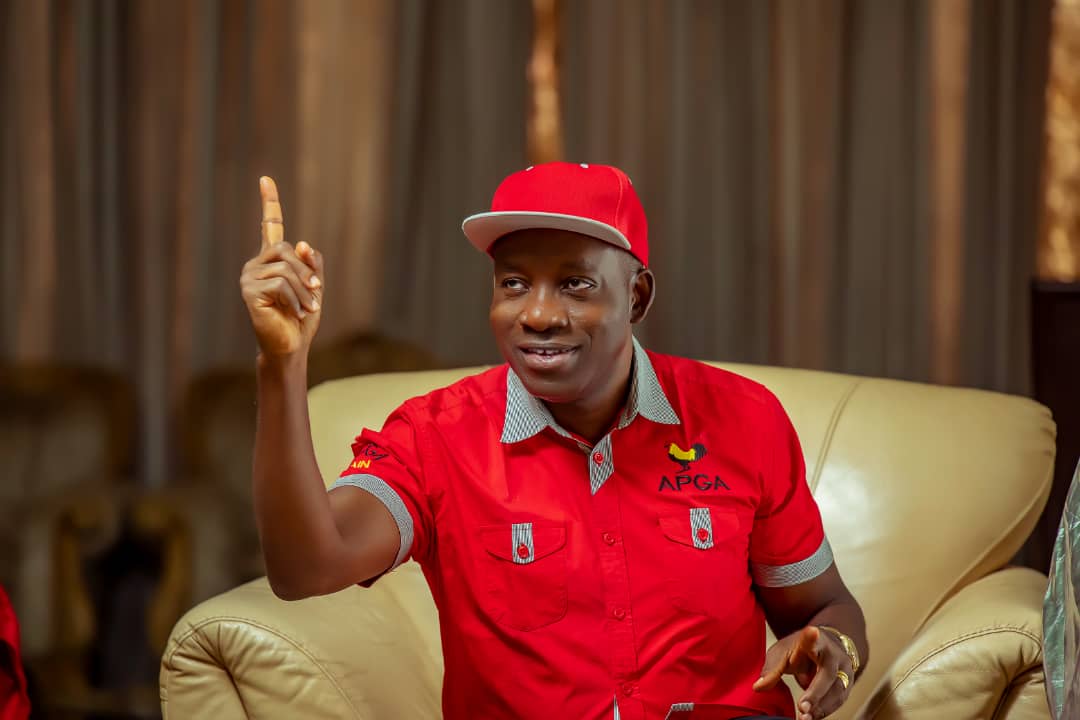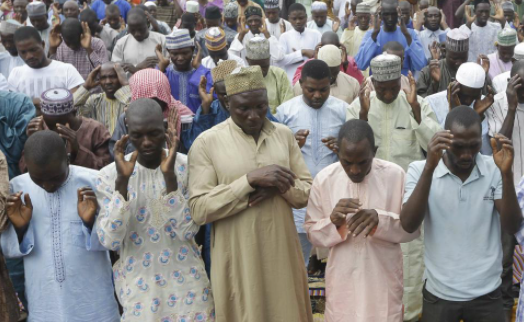Apparently accustomed to getting away with reckless claims, marked by outright concoctions attributed to dodgy sources and serving such through his Notes from Atlanta, Farooq Kperogi, the US-based professor and newspaper columnist, produced a 1, 541-word salad of dangerous speculations over the weekend. The article, “Ikoyi Tragedy and Casual Bigotry Against Yoruba Muslims”, was a merry dirge – a poorly disguised expression of joy at the tragedy that befell Femi Osibona, the developer behind the ill-fated Ikoyi multi-storey building. For reasons not exactly hidden, the article instantly put him on the shit list of many of his fans, who cream off on his regular fusillade at the Mohammadu Buhari presidency.
Kperogi’s major material for the piece was the viral video of a young Yoruba graduate and self-identified Muslim, Adebowale Sikiru, who claimed that he was denied employment by Osibona for being a Muslim. Osibona, said Sikiru, asked him what church he attended during the interview and replied that he is a Muslim. His response allegedly sent the alarm bells chiming in the head of Osibona, who allegedly replied: “Ah, I can’t work with a Muslim”. Osibona, claimed Sikiru, said he would not want to work with a man who would respond to “Praise God” with “Alhamdulillah!”
He added that Osibona blamed his inability to make progress in life on his Islamic faith. The wounding comments were allegedly made in the presence of artisans, many of whom must have been squashed to death like Osibona, when the building dissolved into a tall heap of concrete and metal.
The tragedy, most likely, has robbed the public of the chance to verify Sikiru’s claims. There is very little doubt that Osibona, as per videos dredged-up post-collapse, was a faith-on-the-sleeve Christian. I suspect that those videos must have helped convince Kperogi that Sikiru’s story was true. In one of the videos, Reverend Matthew Ashimolowo, who claimed to have anointed Osibona for many exploits (pardon the doctrinal lingo), said the property developer belonged to the Celestial Church of Christ (CCC). He also must also have fancied Pentecostalism, which has a dim view of white garment ministries and does not classify such as Bible-believing.
Advertisement
That he and Ashimolowo found a common ground, I suspect, was due to his appetite for the motivational mumbo-jumbo for which Ashimolowo is an exponent.
On account of Osibona’s alleged rejection of Sikiru, Kperogi persuaded himself that Muslims in Yorubaland, which must include parts of Kwara and Kogi states, are routinely treated like children of a lesser god and are forced to hide their religious identities or convert to Christianity to find societal acceptance. In Kwara, home to a hefty Yoruba Muslim population? In parts of Kogi, with a decent number? No chance at all!
Kperogi would go on to claim that it is this unfair treatment that compels prominent Yoruba Muslims to publicize the Christian faith of their wives, so that they could be acceptable to Yoruba Christians. Only MURIC’s Ishaq Akintola, the G.O.A.T (Cum Laude) of bizarre utterances, can be relied upon to match that level of silliness. He has yet to.
Advertisement
“The late Gani Fawehinmi always had a need to show that his wife was a Christian. Bola Ahmed Tinubu has a need to strategically let it be known that his wife isn’t only a Christian, but a deacon (sic). House of Representatives Speaker Olufemi Hakeem Gbajabiamila concealed his Muslim identity until he needed the support of the Muslim North to become Speaker. After the fact, his handlers played up the fact that his wife and his mother are Christians. Prince Bola Ajibola, one of Africa’s finest jurists, who happens to be a devout Muslim, doesn’t openly bear Abduljabar, his Muslim name—unlike his father, who bore Abdulsalam as his first name—perhaps, not being married to a Christian, it was his only way to reassure his Christian Yoruba brothers and sisters that he is Yoruba. Yet, he is so strong in his Muslim faith that he established the Crescent University, one of Nigeria’s first private Islamic universities, in his hometown of Abeokuta,” Kperogi speculatively and dangerously wrote.
Fawehinmi’s first name, Gani, a circumcision of AbdulGaniy, was one he bore all through his life-without any hint of shame. His most visible wife, Ganiyat, was born a Christian and has remained one, but was given a Muslim name, despite not converting to Islam, by the husband, who Kperogi thought was made to be ashamed of his faith. It is probably strange to Kperoogi that it is not everyone that is illiberal as he is, and would wish to impose religious beliefs on spouses or force on them sartorial identities of his faith whether or not they are converted.
Gbajabiamila, Kperogi correctly claimed, became loud about his Muslim identity to appeal to the North, from where the columnist hails, in search of Northern support for his speakership ambition. That is politics. Bukola Saraki did not flaunt Abubakar, his Muslim name, until he wanted to be governor, in the predominantly Muslim Kwara.
Did Gbajabiamila consciously project the Christian identities of his wife and mom at the time? I do not remember that any attention was paid to the religious faith of his wife and mother in Yorubaland. I cannot recall that conversation on the subject was strident among the Yoruba. What was dominant at the time were concerns that all the three organs of government would be headed by Muslims-Buhari as President, Ahmed Lawan as Senate President, Gbajabiamila as Speaker of the House of Representatives and Justice Ibrahim Tanko Ahmad as Chief Justice of Nigeria.
Advertisement
Tinubu’s wife is an assistant pastor, not a deaconess, and I also do not recall her religious inclination attracting any attention. Ajibola apparently had a tete-a-tete with Kperoogi on why he has not been using his Muslim name. No law, religious or otherwise, prescribes that. The jurist attended a Christian school, Baptist Boys’ High School in Abeokuta, and never became a Christian. I attended the same school along with Muslims, who were never forced to convert. Many of them were members of the Muslim Students’ Society – in a Baptist school. Even as he has established a faith-based university and is retired, Ajibola has not promoted Abduljabar to the status of a first name. But Kperogi, a word salad exponent, is unable to understand personal preferences.
There are many Christians and Muslims, whose first names are native ones, with their religious names less prominent or unknown. That is their preference.
I wanted to take Kperogi’s piece as an exercise in wild speculation, but changed my mind when I saw that he also claimed that “Yoruba Muslims have no voice and seem to have accepted their fate with listless resignation,” he wrote, adding that he knew he would come under attack for “telling the truth”.
He told no truth, but sought to incite Yoruba Muslims against Christians. He anticipated attacks, which are duly going in his direction. Being thoughtless and proud of it should attract mockery, of the vicious variety. It would have been nice to see him support his claim that being a Muslim predisposes a Yoruba person to the enjoyment of lesser socio-economic and political privileges with numbers. He did not.
Advertisement
He also failed to provide a proof of his claim that Muslims are numerically superior to Christians in Yorubaland. What can be asserted without evidence can be dismissed without one. So, this is dismissed as coming from a diseased mind with an agenda. As earlier stated, the Yoruba-speaking part of Kwara, his home state, has a huge Muslim population and it is safe to say that Yoruba Muslims there are not marginalized. Kperogi did not talk about the Southwest, but Yorubaland.
There is religious stigmatization/ bigotry in Yorubaland. It exists at the personal level – between religions and within the same religion-not at a collective level. Beginning from the 80s and rising rapidly in the 90s through the noughties, Islam and Christianity have undergone revivals, with each trying to be more assertive. As part of its growth strategy, Pentecostalism deployed calumny against orthodox churches, especially the Catholic Church, branding them “non-living” or not Bible-believing, and, of course, Islam.
Advertisement
The popular praise song “Jesus na you be Oga/ Every other god na so so yeye” is sung in churches across Yorubaland and elsewhere. There is little doubt it denigrates other faiths, but it is not a Yoruba thing. Osibona’s CCC, with its cocktail of Judeo-Christian and indigenous practices, is bad news among Pentecostals, for example. Of course, among some Christians in Yorubaland, Islam is viewed with suspicion and even derision. Earlier this month, as noted by Kperogi, the newly appointed Vice Chancellor of the Osun State University was mocked on social media for being bearded, a requirement of his faith. The same requirement, it has to be said, is made in the Old Testament.
Very recently, Bishop David Oyedepo told his followers that he would not offer alms to beggars who seek his help in the name of Allah.
Advertisement
Islam’s renaissance could be seen in the growth of movements/prayer groups, many of which seek to promote the identity of Muslims and assert their rights, the latter through agitation against perceived Christianization of the social space. The agitation finds intermittent expression in the demand for the hijab to be recognized in schools and for Friday, the day of Muslim worship, to be accorded the same status as Sunday. This brings occasional tension.
There are Yoruba Muslims, as elsewhere, who view Christians and Christianity as no better than dog poo. Christians, in the past, were branded “kiriyo” by some Yoruba Muslims. I do not know the origin of the word, but it suggests a person moving from home to home to be fed. I briefly flirted with the idea of marrying a Muslim girl, who told me upfront that my chances of being accepted by her family were sub-zero. I do not think this is exactly a product of hatred, but of fear that integration could be difficult should such a relationship end in marriage.
Advertisement
On both sides, there are insecure nutcases, who believe they are superior/ entitled to more privileges than others on the basis of faith. I, like many other Yoruba non-Muslims, relate well with Muslims and vice versa. You can also find Muslims whose relationship with fellow Muslims is frosty.
Around 2008, I accompanied a friend and former professional colleague, a Catholic, and his wife-to-be to see the young woman’s Muslim father, in Ota. The man, who was visiting from the UK, asked my friend what religion he professed. He said he was a Christian, a Catholic. His daughter, who sat with us, had switched to Christianity, so the man did not exactly have a problem beyond asking if my friend was not the fanatical type. I guess he asked the question to gauge if my friend would someday baulk at joining his in-laws for Muslim festivities. My friend said he was not.
The man then told us a story about a brother or cousin of his, whose daughter had strayed by marrying a “wrong” man. The daughter of his brother or cousin, he said, was to name her child the week after he visited. He was to stand in as the father because her biological father had sworn not to have anything to do with her for marrying a Muslim belonging to the Ansar-U-Deen movement. He wanted her to marry a Tebliq, a movement I was hearing of for the first time. It is similar to mainstream Christians’ attitude to Jehovah Witnesses, who are viewed as anything, but Christians.
Kperoogi’s blurry familiarity with the Yoruba was equally on display when he cited a single article as evidence that Yoruba Christians believe that Yoruba Muslims are in support of the herdsmen wreaking havoc in Ekiti State because they share the same faith. This has to be worse than poor. If the garbage produced by Kperogi over the weekend cannot be taken as having the buy-in of every Northern Muslim, the claim of cited article’s writer cannot be taken as the position of Yoruba Christians. With his article, Kperogi has shown himself up for what he is: a religious supremacist. What he sought to do, in a roundabout way, was spit at Christianity-as insensitive as it is-using Osibona’s misfortune. Nothing else.
Email: [email protected]
Views expressed by contributors are strictly personal and not of TheCable.
Add a comment







